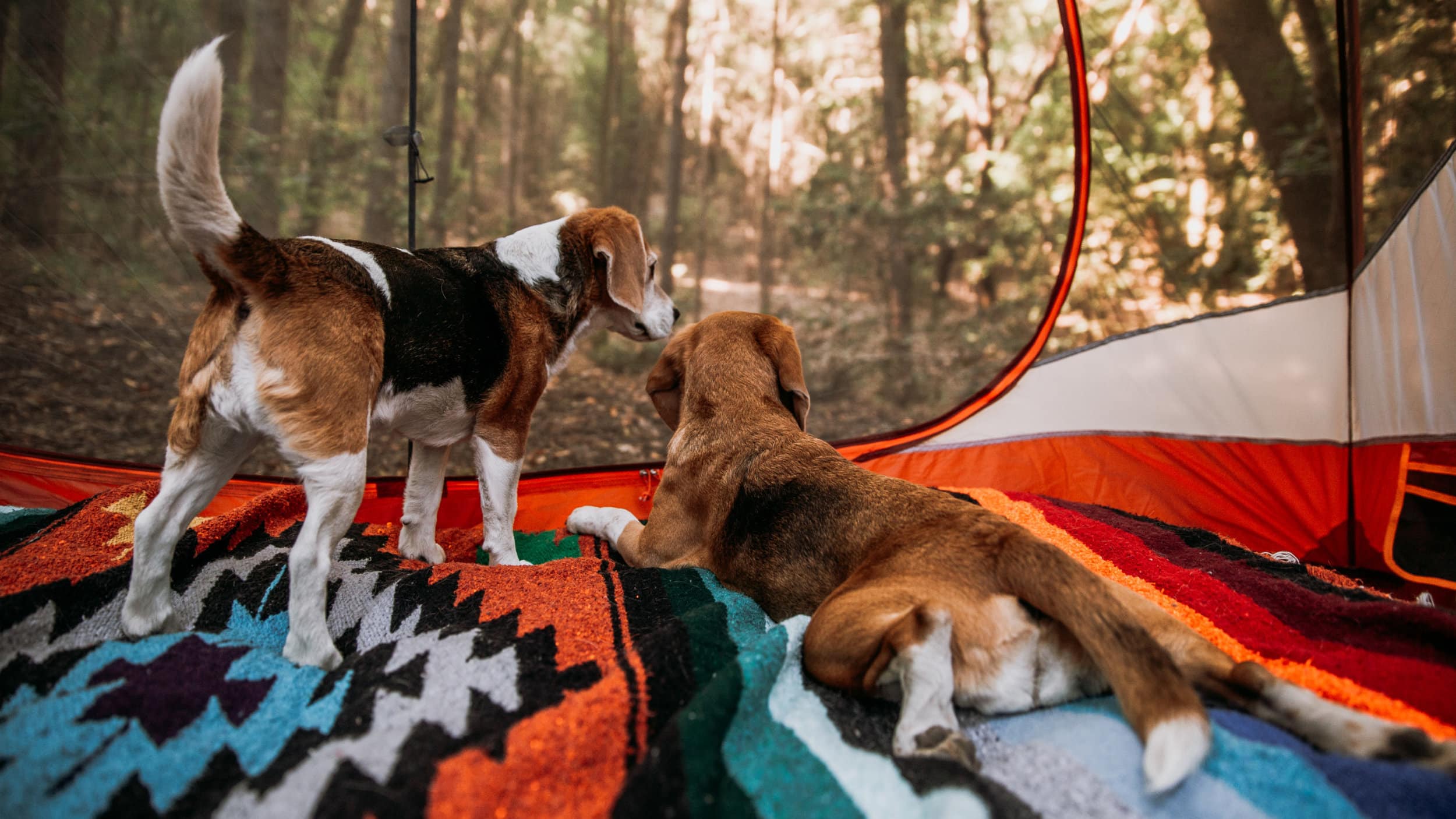California leash laws, revised in 2006, set out some rules for people leaving home with their pets, and individual RV parks and campgrounds may impose additional layers of regulations. A page at Camp-California.com spells out the leash-law basics. Meanwhile, we at DogTrekker.com offer some advice to help keep tails wagging.
At most campsites, rules call for dogs to be leashed at all times and to sleep either in your tent or in your vehicle. Obviously, you can’t cook or build a campfire with a leash in your hand, so unless your pooch is a couch potato, you’ll want to think ahead about how to temporarily tether her so she won’t run into the road or take off after a squirrel while your back is turned.
Cable tie-outs, widely available at pet stores, can be secured between two trees and will keep Daisy safe and happy while you putter around. An option popular with hunters, and especially handy at sites without trees, is a stake-out post with a 30-inch chain attached to a swivel. Daisy can move freely within a five-foot circle, and you can position the stake almost anywhere. (pack a mallet to hammer the post into the ground, and watch the shade; you may have to move it several times a day). Be forewarned: pet-store stake-outs that screw into the ground might work well in soft, grassy lawns, but may be more difficult to get into the dirt at a campground.
Also consider that there may be wild animals in the area where you’re camping. An estimated 30,000 bears roam the Sierra Nevada, and their presence should be a top-of-mind concern, especially for tent campers. Keeping a clean camp is the most important element of being bear aware. Remember, secure food storage isn’t just for people food; it’s for dog food, too. A few crumbs of kibble left out in a bowl are enough to attract raccoons, squirrels, skunks, dive-bombing Steller’s jays—and bears. Bear-proof steel storage boxes have been installed at most developed campgrounds in the Sierra. If your site doesn’t have one, follow campground rules.
The California Department of Fish and Game offers some solid-sense tips for camping in bear country. Among them:
– Dispose of trash in bear-proof garbage cans or keep it stored in a secure location with your food.
– Store food and toiletries in bear-proof containers or in airtight containers in the trunk of your vehicle.
– Clean dishes immediately after eating.
– Clean grills after each use.
– Don’t keep food or toiletries in your tent.
– Don’t sleep in the clothes you wore while cooking.

